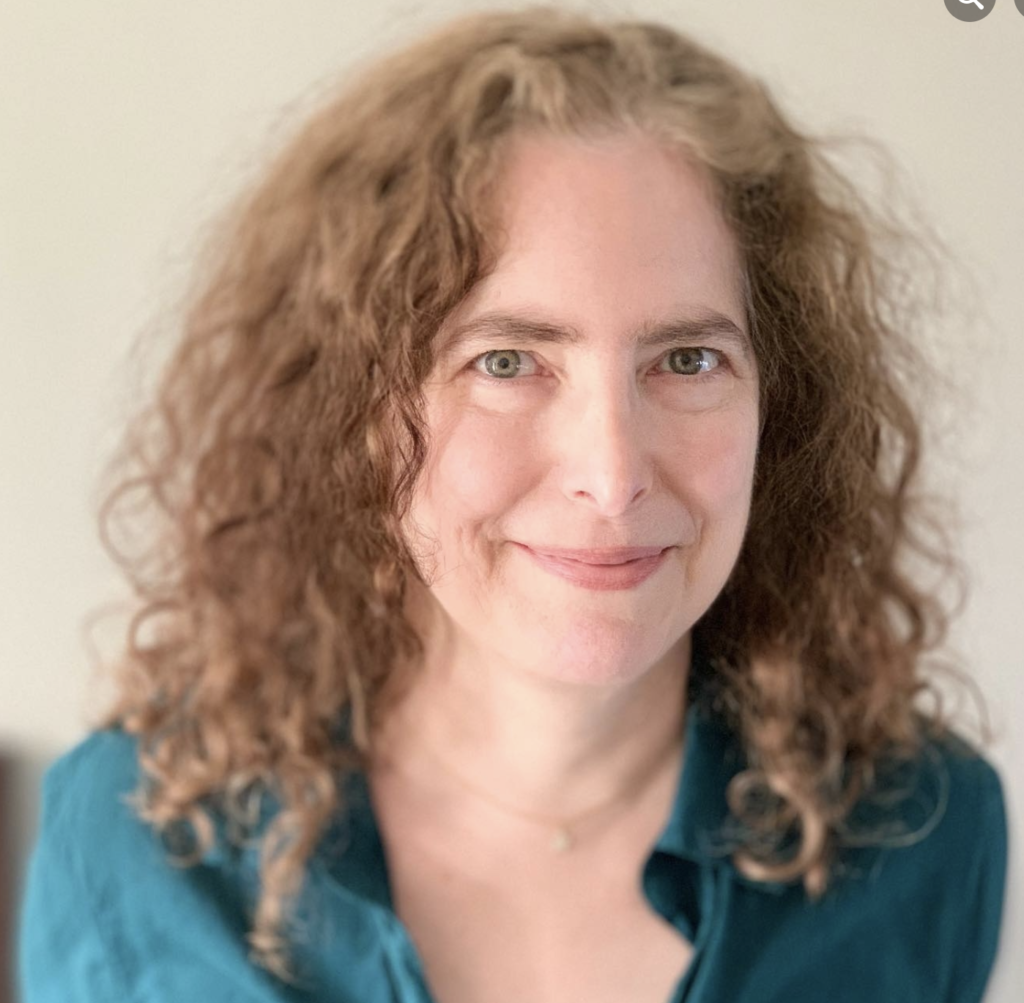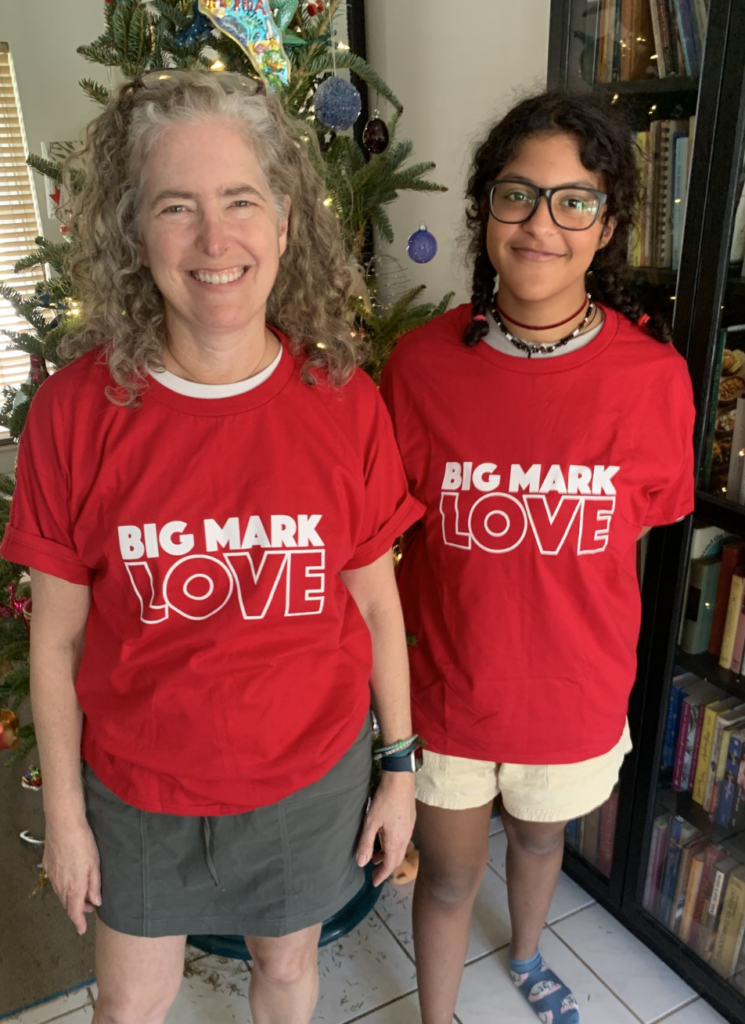Pathbreakers of Arab America—Diana Abu-Jaber

By: John Mason / Arab America Contributing Writer
This is the fifty-fourth of Arab America’s series on American pathbreakers of Arab descent. The series includes personalities from entertainment, business, sports, science, academia, journalism, and politics, among other areas. Our fifty-fourth pathbreaker is Diana Abu-Jaber, who writes fiction about Arab and Arab-American culture and identity. Her stories reflect her intercultural experience, growing up in New York state and Jordan, and the cross-cultural realities of her Jordian father and American-born, Irish-German mother. Diana’s stories often involve the culture of food and food production, as practiced by her two families. She is a professor of English and currently a Writer-in-Residence at Portland State University.
Abu-Jaber brilliantly captures the mix of Arab American and homeland Arab cultural realities in her highly praised fiction
Diana Abu-Jaber was born in Syracuse, New York to a Jordanian-born father and an American mother. At the age of seven, according to Syracuse.com, she moved with her family for two years to Jordan and visited back and forth during her childhood. These American and Jordanian experiences, as well as cross-cultural issues, especially culinary reflections, appear in her work. Diana received a BA in English and Creative Writing from the State University of New York at Oswego, an MA in English and Creative Writing from the University of Windsor, and a PhD in English and Creative Writing from Binghamton University.
Her academic appointments, Wikipedia’s series on Arab Americans reports, include: Visiting Assistant Professor, English, Iowa State University (1990); Assistant Professor, English, University of Oregon (1990–1995); and Writer-in-Residence/Professor, English Department, Portland State University (1996–present).
Diana is the author of ‘Crescent,’ which was awarded the 2004 PEN Center USA Award for Literary Fiction and the Before Columbus Foundation’s American Book Award and was named one of the twenty best novels of 2003 by The Christian Science Monitor. Her novel, ‘Arabian Jazz,’ won the 1994 Oregon Book Award and was nominated for the PEN/Faulkner Award. She is also the author of a memoir, ‘The Language of Baklava,’ and ‘Origin’ (2007) the first in a new mystery series starring Lena, a highly gifted, intuitive fingerprint expert.
Diana Abu-Jaber’s culinary memoir, ‘Life Without a Recipe,’ has been described as “a book of love, death, and cake.” Ruth Reichl calls it “bold and luscious” and “indispensable to anyone trying to forge their own truer path.” Her young-adult novel, ‘Silverworld,’ a fantasy with an Arab American girl at its heart, was published last spring by Crown Books / Random House. Her novel, ‘Birds of Paradise,’ won the 2012 Arab American National Book Award. It was also named one of the top books of the year by National Public Radio, the Washington Post, and the Oregonian.
Abu-Jaber’s fiction accurately and emotionally depicts real-world Arab and Arab American life
A Syracuse.com article by Linda Loomis connects Abu-Jaber’s work to literary greats William Faulkner’s Mississippi, Jane Smiley’s Iowa, and Luis Alberto Urrea’s Borderlands. Diana’s turf is Central New York, where her roots run deep. “Syracuse made me a writer,” Abu-Jaber says, discussing how her youth in a bi-cultural Central New York family that also resided in Jordan, her father’s homeland, for two years and lengthy vacations there, fashioned her life and her writing. Diana also credits her professors who she recalls, “Back then, my professors were colorful and strange and creative in ways that many faculty members are not allowed to be anymore…”
Adding to the flavor of this picture, Diana described her mother, Patricia Abu-Jaber, a reading specialist at Liverpool Middle school for nearly 30 years, and her father, Gus, a dynamic, brilliant cook. In contrast, her maternal grandmother was a serious baker. Abu-Jaber grew up between their influences in both writing and cooking. “Their approaches to cuisine reflected their approaches to life; they didn’t agree on a lot, but together, they taught me to take food as seriously as I did all my other endeavors.” Much of this is captured in Diana’s 2016 book, ‘Life Without a Recipe: A Memoir of Food and Family.’
Reporting on ‘Life without a Recipe,’ Loomis says, “This is Abu-Jaber’s most intimate story, drenched in all the sweetness of her grandmother’s German baking and replete with the savory spiciness of her father’s Middle Eastern fare. Grandmother blends and mixes, while father chops and smashes, and all the while, they toss insults at each other, their antipathy as necessary to sustenance as are the products of their culinary arts.”
Readers learn from ‘Life without a Recipe,’ “that living without a recipe helps the narrator survive the kitchen wars, find her special identity in a houseful of sisters, cousins, and frequent guests, and develop her unique creative pathway. It also, however, leads to some miss-measured lifetime decisions and ill-timed relationships. All experiences are thrown into the pot and shared openly. It’s an honest, funny chronicle of one family’s love of food and, despite upheavals and disagreements, love of one another.”
In a separate review, Diana’s ‘Fencing with a King’ depicts the King of Jordan who is turning 60. “How better to celebrate the occasion than with his favorite pastime―fencing―and with his favorite sparring partner, Gabriel Hamdan, who must be enticed back from America, where he lives with his wife and his daughter, Amani.” With all the involvement of many disparate relatives, a divorced poet, a mysterious father, a Palestinian refugee mother, and Uncle Hafez, advisor to the King, a puzzling story evolves.
It continues, “With sharp insight into modern politics and family dynamics, taboos around mental illness, and our inescapable relationship to the past, ‘Fencing with the King’ asks how we contend with inheritance: familial and cultural, hidden and openly contested. Shot through with warmth and vitality, intelligence and spirit, it is absorbing and satisfying on every level, a wise and rare literary treat.”
Yet another review, of Abu-Jaber’s novel, ‘Crescent,’ describes “a lyrical tale of love, family and tradition, peopled with Jaber’s acters of Arabian descent, who live in an enclave in the heart of Los Angeles, California. Whether Iranian, Lebanese, Iraqi, or Jordanian, all have in common the longing to return to the homelands of their youth, impossible given the socio-economic and political changes of the last decades. The author speaks particularly to the Iraqi exiles, in a poignant portrayal of their memories, folktales and family connections.”

The review continues, Abu-Jaber writes “in poetic phrases that remind this reader of the prolific Alice Hoffman, as page after page is filled with such deeply moving images, sounds and smells that ‘Crescent’ redefines cultural stereotypes, allowing each individual his/her own identity. The most important ingredient in this tasty concoction is the Arab American Sirine, a master cook of ethnic delicacies at Nadia’s Café, a Lebanese establishment, where students and other patrons gather to enjoy familiar dishes and discussions of their native countries.”
Continuing the narrative, “While current events swirl around her, Sirine blithely attends to the meals she lovingly prepares, stirring long-buried memories of her childhood longing for absentee parents, who travel to distant lands in an effort at humanitarian aid. When, finally, her parents fail to return home, Sirine quietly closes her heart against further loss.” The rest of the story is one of love, between Sirine and an exiled Iraqi professor of literature, not a simple romance, but one involving lots of intra-Arab cultural distinctions.
Diana’s ‘Arabian Jazz,’ an earlier novel, rounds out a review of her important work. This is a novel by a more recent generation of Arab American writers than such luminaries as Edward W. Said and Anwar Abdel Malek. The novel depicts a small, poor-white community in upstate New York and a transplanted Jordanian family, one of whom “loves American jazz, kitschy lawn ornaments,” and their daughters. The question of marriage between an Arab woman and an American man is preeminent, the question being whether the daughter retains her Arab identity.
Finally, we offer praise for how Abu-Jaber has brilliantly captured the mix of Arab American and homeland Arab cultural realities in her highly praised fiction. Along with other American literary greats, Diana’s fiction reflects a detailed sense of real-world experience, in her case Arab and Arab American life experiences.
Sources:
–“Nassim Nicholas Taleb,” Wikipedia Series on Arab Americans, 2024
–“Diana Abu-Jaber to tell Gifford audience how CNY made her a writer,” Syracuse.com, 11/4/2018
–“Diana Abu-Jaber, Ph.D.,” Portland State University, College of Liberal Arts and Science, Professor, 2023-24
John Mason, Ph.D., focuses on Arab culture, society, and history and is the author of LEFT-HANDED IN AN ISLAMIC WORLD: An Anthropologist’s Journey into the Middle East, New Academia Publishing, 2017. He has taught at the University of Libya, Benghazi, Rennselaer Polytechnic Institute in New York, and the American University in Cairo; John served with the United Nations in Tripoli, Libya, and consulted extensively on socioeconomic and political development for USAID and the World Bank in 65 countries.
The views and opinions expressed in this article are those of the author and do not necessarily reflect the position of Arab America. The reproduction of this article is permissible with proper credit to Arab America and the author.
Check out our Blog here!








